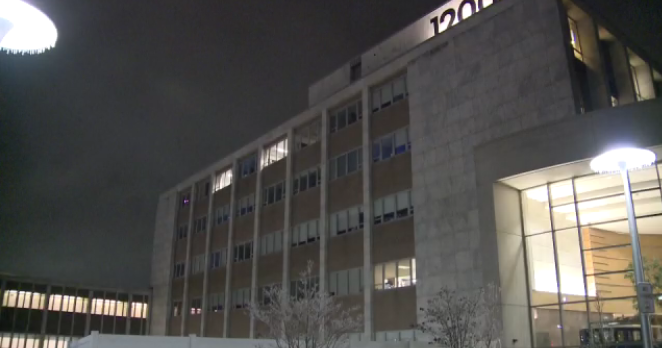Despite rampant Omicron, this COVID expert believes South Africa is "in a good space"
Johannesburg — Among the legions of scientists working around the clock in South Africa to track and study the coronavirus, including those who quickly detected the Omicron variant and alerted global authorities to it, a phrase has become increasingly common in recent days: describing this fourth wave as very different.
The lack of high death and hospitalization rates, despite the fact that Omicron has spread at breakneck speed across the country and accounts for most of the infections over the past three weeks, is the most glaring difference.
Professor Shabir Madhi, a vaccinologist at Wits University in Johannesburg who ran trials on AstraZeneca's COVID vaccine, believes it is the substantial percentage of the population in places like Gauteng province — which includes the urban hubs of Pretoria and Johannesburg and has seen a dramatic uptick in new infections — with underlying T-cell immunity that is preventing the disease from becoming more severe.
T-cells are one of the body's immune responses to infection that can be prompted by vaccination, or by prior infection. Antibodies are also induced, which help to prevent reinfection, but T-cells work more to prevent any future infection from causing such a severe reaction. They dull the blow, in other words.
Already in Gauteng, experts say the number of new infections appears to have plateaued relative to the still-rapid increase elsewhere in the country, and in other places where it's more recently taken root.
"We will be in a much better space"
Madhi told CBS News that this trend can be compared to the end of the Spanish flu pandemic in 1918.
"They had like three rough rides of waves, and then there was this population immunity that started to evolve, which probably resulted in the Spanish flu becoming more, sort of endemic."
Madhi believes that South Africa may be experiencing something similar now, though he cautions that it's still early days.
"I think we are going into a good space, at least in settings such as South Africa where we have substantial amount of underlying immunity — largely driven through natural infection, inadvertently — I think, we are in a good space."
He adds that, of course, there is no predicting what the coronavirus might do next, and what other mutations may arise.
"But for this particular wave, I think we will be in a much better space, and we will experience much fewer hospitalizations, as well as deaths, from COVID-19 compared with what we had experienced in any of the previous three waves."
A "true test" for the vaccines
Madhi stressed that while previous infection alone, without vaccination, does appear to prompt a strong T-cell response, there's no reason to believe there's any advantage over vaccination — and there's every reason for countries to try to avoid the high death rates that come as a side effect of widespread natural immunity.
"Certainly, the vaccine still gives you T-cell immunity," he said.
"This is going to be a true test of the vaccines, at least when it comes to preventing severe disease." Madhi said. "In many high-income countries, most of the immunity that currently is prevalent is because of vaccine-induced immunity, unlike in South Africa where most of it is probably through natural infection. So, whether the same thing transpires in the U.S. and in the U.K. — where you get this uncoupling of infections and severe disease — I think that remains to be tested."
But Madhi said he was "optimistic that we will see the same sort of uncoupling," with Omicron infections rising steadily but not leading to a corresponding sharp rise in hospitalizations.
"Certainly, vaccines are still very much required, and if anything, this hybrid — where people have been infected, and then sort of get a boost with the vaccine — in a sense, that probably induces even a much more resilient, both an antibody response, as well as a T-cell response."






